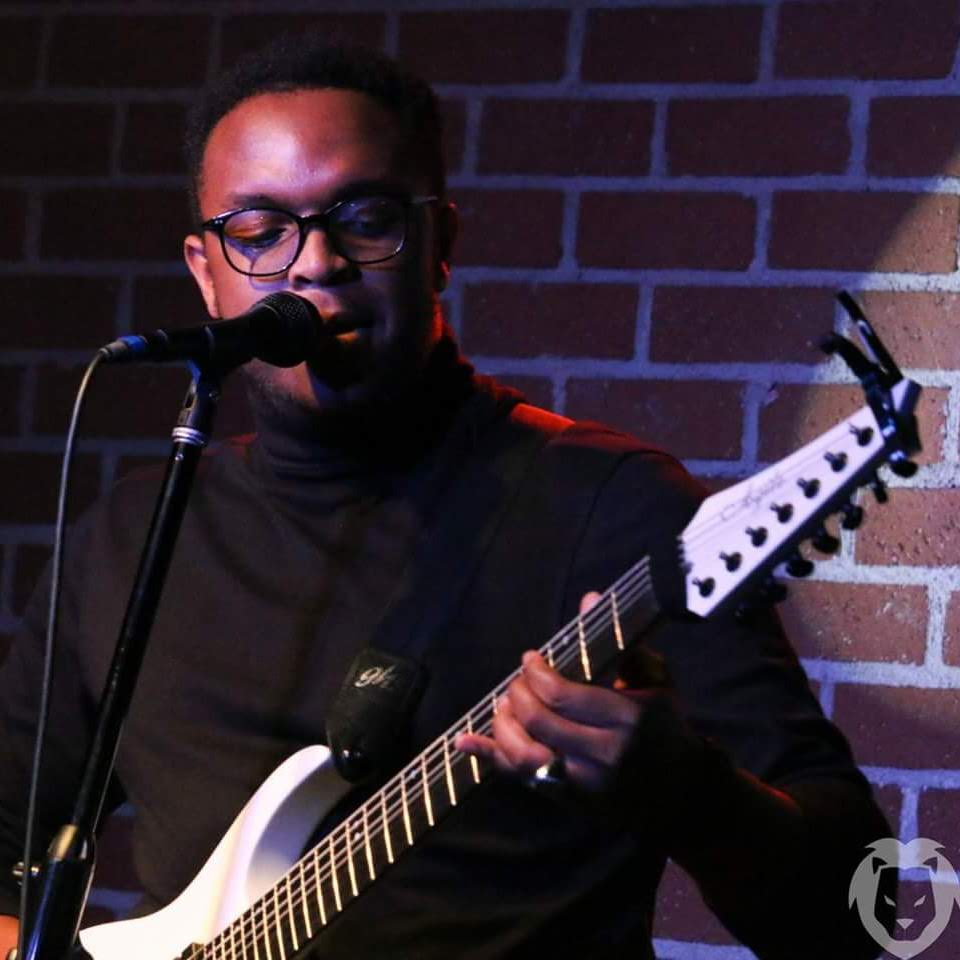The Many Voiced God founder shares their experiences in the industry and on the Twin Cities campus.
By Skylar Wolfe
Maje Adams has never settled for a life of convention.
So it makes sense that the University of Minnesota theater student heads a multimedia company called The Many Voiced God, which uplifts the voices of overlooked artists who challenge convention too.
“We focus on making that kind of thought-provoking art that is not restricted by convention, that is not told what to do,” Adams said of the company, which started in early 2020.
The Many Voiced God currently represents two Los Angeles-based artists: Derby Reeves, described by the company as a “multi-instrumentalist, audio engineer, director, and poet,” and Rowan Oliver, “a non-binary spoken word poet, theatre artist, musician, and astrologer.”
“We feel that art is a little too meaningful to be relegated to something that is simply bought and sold,” Adams said. “When we make art as human beings, it is an existential drive to try and find truth.”
For Adams, who uses “he/they” pronouns, the drive comes from deep personal experience. Adams, who at age 23 has performed in theater productions around the country and is writing and producing a second studio album, said they have dedicated their life to making and embracing art in search of a universal truth that they know does not exist.
Adams was born in Georgia to Nigerian parents and spent much of their childhood moving around the world, although much of their childhood was spent in Brooklyn Park just north of the Twin Cities.
Adams studied guitar and saxophone growing up, but constantly sought more creative outlets.
“I played every instrument I could possibly get my hands on,” Adams said. “I just wanted to play immediately.”
Through high school, Adams was captain of the speech team and performed in musicals. To pursue a career as a record producer and film scorer, Adams traveled across the country to attend Loyola Marymount University’s film school in Los Angeles.
“While I was there, I really caught the acting bug,” Adams said. “I realized that, ‘hey, I’m from a theater town, why not come back home?’”
Before Adams’ transfer to the University of Minnesota was finalized, they were cast in a leading role in the fall 2019 production of “Collidescope 4.0: Adventures in Pre and Post Racial America,” a play written and directed by Talvin Wilks and Ping Chong that examines racism and racial injustice throughout history.
“It was the first time I was ever directed by people of color,” Adams said. “It was also a good time getting to play overtly Black characters. I hadn’t actually had that opportunity before.”
Because of the show’s focus on race and the directors being people of color, Adams asked for the first time in their career, “Are you casting me because I’m a Black man and there are not that many Black men in this department?”
Wilks and Chong’s reassurance brought newfound confidence, Adams said.
“There was no longer this fear of, ‘Is this my place?’” Adams said. “From that moment and through the entire rehearsal process, I learned very specifically how to empower myself in the spaces where I’m wanted, and then in the spaces where I may not be wanted but I can make myself fit in.”
After Collidescope, Adams booked their first professional acting job in early 2020 in Frank Theatre’s production of “The Convert,” written by Danai Gurira, “a powerful play exploring British colonialism in southern Africa and the use of Christianity for cultural disruption,” according to Frank Theatre.
Then, the pandemic began.
“The Convert closed literally the day before Minnesota shut down,” Adams said. “It was definitely quite a shock to my system to be at this point where I was developing my career, making my professional connections, then all of a sudden —bam —no theater.”
The theater program at the University has begun to reintroduce some in-person acting. Audiences are not yet invited, but filmed versions of this year’s plays will be available to view online. Adams is currently rehearsing to play Agamemnon in Hecuba, which will be viewable on Vimeo in May.
Despite COVID’s stunting live performances, Adams’ creative pursuits have not been compromised.
“Music is not gone,” Adams said. “It’s not even close to gone.”
Adams’ musical genre includes “everything from prog-rock, jazz fusion, and experimental metal to indie folk, alternative R&B, and Romantic-era classical,” according to The Many Voiced God.
Adams plans to release their second studio album, “The Amber Gaze,” this year, a follow up to their debut album, “Darker Blacks and More Vibrant Reds,” both of which are largely self-written and produced.
Adams has grappled with finding belonging as a young artist.
“The beautiful answer I found is that there is nowhere you’re supposed to be,” Adams said. “You’re just supposed to be.”

